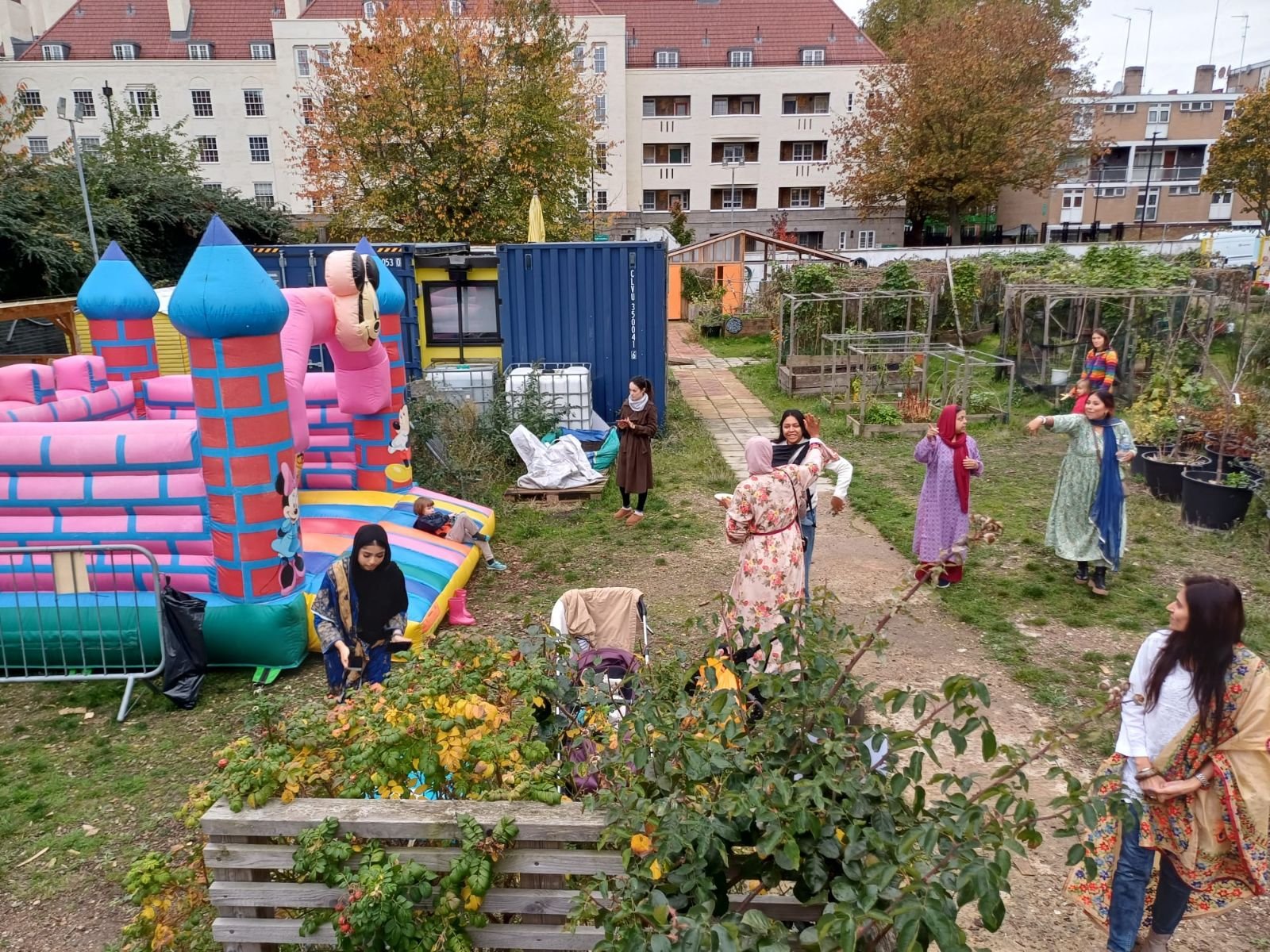How To Till Concrete
There was once a palace made of copper, which stood on mounds of woodchip in the middle of desolate plains of concrete. Around it, hedges grew that rivalled ancient palace grounds, like the Yuanming gardens of Imperial China, that tickled the beard of the Old Green Man of the English forests. An old smoking shelter nestled within became the most giving of all structures, a polytunnel, and great salads, butterheads and chard and oka, were grown from within. Goosefoot and Wild Mountain Spinach seeded in abundance. Then a great metal hand came down from the sky and plucked the little palace up, moving it across the lands, placing it into its final resting place. The workers, we Londoners of many spaces and beginnings, moved with it, carrying buckets of pond and trolleys full of soil.
I spent a winter in this palace, stoking the fire in the corner, falling in love with all things floral. Sessions were held for local schools. Great grandees of the Paper Garden took me under their wing; Siw Thomas, Emma Trueman, Jane Riddiford and Rod Sugden. Holding so much and giving, telling stories too.
When the days got too hot we retreated into the belly of the Printworks, which as I write and look to my left, to the original site, is being devastated by machines. A rhythmic thump heralds pneumatic dreams of new builds and redevelopment. I see still in my minds eye the endless rooms, the paper flowers, the kitchen we cooked in with the same two electric hobs we saved and still use. Siw and Emma, building, moving, making. In the dry cool spending time taking down a yurt with master builder Glen Mcdonald inside the bowels of this strange cold, corrugated building.
With the moving of the palace, we entered this, our latest phase of the Paper Garden. The old palace was reborn and then finally withered as we the team, stewarded by Glen and the build team, attended by Joel De Mowbray and Morgan Da Silva of Yes Make, built our new home, from the spit and nails of London, from the wood of Epping Forest, the railway sleepers of Britain. Thousands of people, mainly children, have visited ,and thousands more will still.
In that hot post-lockdown summer, two years into my time here, as we were building our latest site, we turned the middle of a car park into a barbeque, setting great sails above us and, in the middle of drought and sweat, ate (vegetarian) hot dogs and sought shelter in friendship and camaraderie, of which there was no short supply. For months we resided in a mousey Frankie and Bennies in the greater car park area, and still we delivered sessions.
Eventually the dust has subsided on our garden, and we have been allowed to bloom, for what seems like the first time in ages. There is precious little moving to be done, and all that lies ahead, for the time being, is stable. Everyone in the team has got some breathing space - and it’s now up to us to inhabit that, because we aren’t used to it. We fret over wasted hours, but the garden and the people we teach will always bring us back, that wasted hours aren’t always wasted, and when we take lunch and everyone sits at the table we can be present, be full . Sometimes casting off old habits is as hard as anything, but if there’s anything we are used to at the Paper Garden, it’s change. So we will change and meet the new horizon, even if we aren’t here forever. We will change and transform as the flower sets its seed, and vibrant colour drains away to a rich brown life, ready to do it all over again.
I think that a little bit of each of us is in every scrap of land here - as we engage, despite all of the difficulties, from funding to teaching, in the very act of life giving and creation that is what it means to be a gardener and a guardian of space and place - a little bit is left in every slip of soil or crumb, or dust. The corn cockle clings to the dust of the saharan winds in the very concrete that will one day disappear into the ground again, and meadows will wash in the winds.








Meet our second cohort of earth build trainees! Their focus has been on all things wood, including green woodworking and the timber construction of the kitchen. They have learned on the job, while working on our sustainable natural build construction project to create our first permanent community garden, at the #TriangleSite.